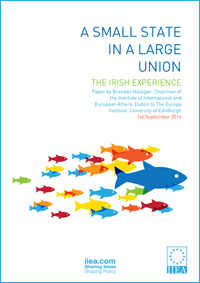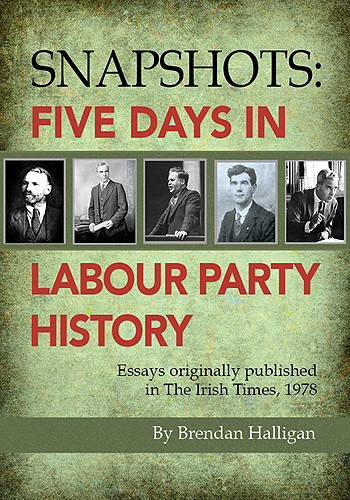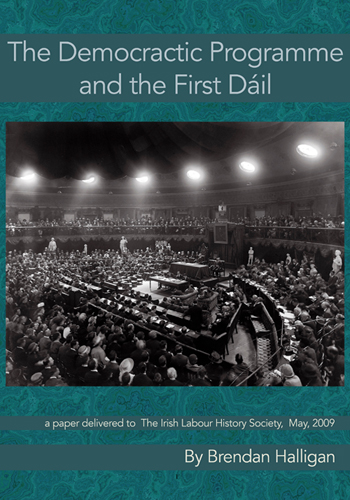WordPress database error: [You have an error in your SQL syntax; check the manual that corresponds to your MySQL server version for the right syntax to use near 'FROM wp_posts
WHERE 1=1 AND ((wp_posts.post_type = 'post' AND (wp_posts.' at line 2]SELECT SQL_CALC_FOUND_ROWS all
FROM wp_posts
WHERE 1=1 AND ((wp_posts.post_type = 'post' AND (wp_posts.post_status = 'publish')))
ORDER BY wp_posts.post_date DESC
LIMIT 0, 10
WordPress database error: [You have an error in your SQL syntax; check the manual that corresponds to your MySQL server version for the right syntax to use near 'FROM wp_posts
WHERE 1=1 AND ((wp_posts.post_type = 'post' AND (wp_posts.' at line 2]SELECT SQL_CALC_FOUND_ROWS all
FROM wp_posts
WHERE 1=1 AND ((wp_posts.post_type = 'post' AND (wp_posts.post_status = 'publish')))
ORDER BY wp_posts.post_date DESC
LIMIT 0, 10
On 15 October 2014, the President of Ireland, Michael D. Higgins, presented a paper at the Institute of International and European Affairs, entitled “An Adequate Economic Discourse for the Europe of Our Grandchildren.” The President and his wife Mrs. Sabina Higgins also visited staff members at the Institute.
Please click on an image below to see photos of the event.
 Brendan Halligan recently gave a lecture on A Small State in a Large Union: The Irish Experience to the Europa Institute at the University of Edinburgh on 1 September 2014.
Brendan Halligan recently gave a lecture on A Small State in a Large Union: The Irish Experience to the Europa Institute at the University of Edinburgh on 1 September 2014.
It focuses on the political strategy employed by Ireland throughout its membership of the European Union and analyses the principles upon which it is based.
While the experience of each state is unique to itself it is suggested that lessons applicable to small states in general can be drawn from the Irish experience. The evolution of the European Economic Community into the European Union over the forty-year period from 1973 is traced for its impact on Irish strategy.
The emergence of a “Core Europe”, consisting of the Eurozone, and the emergence of the “Union Method” of decision-making are both examined for their long run implications for the Union as a whole and for small Member States in particular.
 Snapshots: Five Days in Labour Party History
Snapshots: Five Days in Labour Party History
By Brendan Halligan
In 1978, The Irish Times published a series of essays by Brendan Halligan about Irish Labour Party History, from Labour’s landmark decision to stand aside and permit Sinn Féin to contest the 1918 General Election to the disappointing results of the much anticipated 1970 elections.
The document, covering important events that involved such Irish political leaders such as William O’Brien, Tom Johnson, William Norton, James Everett and Brendan Corish is a fascinating trip down the days of Irish Labour history, detailing good times and bad.
For a downloadable PDF of this document, click here
 If the recent Government Green Paper on energy is to be taken in the traditional sense then its main purpose is to set a sense of direction for the subsequent White Paper, which will define future energy policy for the medium term. With that in mind, I would like to make the following four points:
If the recent Government Green Paper on energy is to be taken in the traditional sense then its main purpose is to set a sense of direction for the subsequent White Paper, which will define future energy policy for the medium term. With that in mind, I would like to make the following four points:
1. It is critical that future energy policy be set in its proper context. Given the increasing scientific evidence about climate change, energy policy should be firmly situated within a much broader framework than is traditionally the case. In short, precedence should be given to decarbonising the economy in preference to economic competitiveness and even security of supply. I think that the strategic direction for energy policy is the most critical question to be resolved and I believe that we should come down firmly on climate change. The so-called trilemma of emission reductions, cost competitiveness and security security should be decisively resolved once and for all in favour of the complete decarbonisation of the economy.
2. The forthcoming White Paper should reflect the sense of urgency that is demanded by the evidence of climate change. Many scientists now believe that we cannot afford to wait until 2050 before we stabilise and reverse carbon emissions and there are some who believe that the timescale could be as short as twenty to thirty years from now. That is the perspective the Irish Government should take and, as a consequence, mould its policy choices accordingly. Logically,that would mean no room for complacency or adherence to a gradualist incremental approach to completing the transformation from black to green energy and all of the other social changes that would have to take place in terms of life style. As a practical example, it would mean moving from the current cottage-industry type of approach to retrofitting towards an industrialised process that would have to be completed within twenty years. Alternatively, this approach could be described as moving from batch production to continuous processing so that a million homes could be fully retrofitted within two decades. As things stand, there’s not a hope of that happening.
3. The White Paper should be based on explicit quantitative targets to be achieved within clearly laid down timescales. If our understanding of climate change science were to change in the future and so demand an even faster pace of transformation then the timeframe could be shortened appropriately. In addition to targets and timelines, the White Paper should spell out the costs and benefits of the energy transformation, with an indication of the costs of mitigation should a “business as usual” scenario be maintained. The most obvious cost of doing nothing, or too little, is that arising from flooding and inundation – a prospect which is beginning to capture the attention of policy makers throughout the world. The real threat to the human race consists of rising sea levels which would have a disastrous effect on coastal cities, especially Dublin and Cork.
4. Irish energy policy needs to be seen in a European context. Indeed, it could be argued that European energy policy needs to be seen in a global context. We must strive for a mentality that breaks out of the confines of national boundaries and positions Ireland as part of a European and global energy market. Obviously, there would be a lot of regulatory consequences which would need to be identified and implemented, since without such changes the transformation to a low carbon future will never be achieved. That thought should enervate the White Paper for without a fit-for purpose regulatory regime policy inertia will prevail over initiative. And the planet will continue to boil up.
 The Democratic Programme and the First Dáil
The Democratic Programme and the First Dáil
By Brendan Halligan
This broad-reaching study entitled “The Democratic Programme and the First Dáil”, covers one of most fascinating developments in the early history of the Irish nation: the build up to the first Dáil’s drafting and adopting of their crucial “Democratic Programme” on 21 January 1919:
“The First Dáil, convened on 21 January 1919, is the subject of three myths, which have become received wisdom:
That the Labour Party, in an act of political cowardice, withdrew from the 1918 General Election as a result of pressure from Sinn Féin;
That by way of a sop to Labour, the Dáil adopted a democratic programme which weakly reflected the principles and philosophy of the party, and
That as a direct consequence of its refusal to contest the 1918 general election, the Labour Party suffered permanent electoral damage and condemned itself to being a minor political player.
Yet, simultaneously, the First Dáil is now mainly remembered for the “Democratic Programme” which was drafted by the Labour Party and quickly attained iconic status that has grown stronger over time. There is an obvious paradox here, which needs to be resolved. There are three points to make in setting the record straight.
First of all, the history of the period has been written by historians with little or no understanding of the Labour movement and, even less sympathy for its policies and leading personalities. Secondly, much of that history is pure propaganda. Thirdly, little of it indicates any understanding of political processes then in play, especially the interaction of the leading personalities in the independence movement.
Suffice it to say that each of the three propositions are false and in no way supported by the facts when examined in the light of contemporary records.
That said, the key to understanding the Democratic Programme lies in the period between the Rising and the General Election in December 1918. More importantly, it lies in understanding the role of three individuals occupying central positions in the Labour Party, namely, William O’Brien, Thomas Johnson and Cathal O’Shannon.
As for the period itself, it was one of the most tumultuous in history – in which events moved at astonishing speed. The dominant reality throughout those two years was the First World War, in particular the mass slaughter on the Western Front which was draining each belligerent of its man power.” …
By Brendan Halligan
A tribute to one of Ireland’s best known figures, Justin Keating.
Keating was a key figure in the new Labour Party created by Brendan Corish in the 1960s and served as Minister for Industry and Commerce in the National Coalition Government from 1973–77.
This tribute was written shortly after Justin’s death on 31 December, 2009:
“Justin Keating was a key figure in the new Labour Party created by Brendan Corish in the 1960s and served as Minister for Industry and Commerce in the National Coalition Government from 1973–77. A brilliant communicator, he was one of the best-known figures in public life for over four decades and was widely respected for the depth and breadth of his intellect.
Born in 1930 to Seán Keating, one of the most notable painters of his day, and May Walsh, a woman of strong republican beliefs, he was reared in the humanist tradition and attended secondary school in Sandford Park before studying Veterinary Science at UCD and University College London. He excelled as a Vzet and eventually became Dean of the Veterinary Science faculty in UCD and, towards the end of his career, the first Professor of Equine Science in the University of Limerick. A research scientist of note, he primarily regarded himself as a scientific rationalist and had the personality to go with it. Cool, rational and patient in debate, his forensic skills in assembling and deconstructing an argument were legendary and equipped him for the roles of teacher and politician.
He was one of a rare breed, an intellectual who took part in public life; not only that, but rose to become the Minister responsible for economic policy.
He came to public notice when he took leave of absence from TCD in 1965 to become Head of Agricultural Broadcasting in RTÉ, then beginning to find its feet as the national broadcaster. He devised and fronted “Telefís Feirme”, an agricultural education programme that became one of the most popular TV series due to his skills as a communicator. Within a year he had become a household name throughout the country and was one of the first TV personalities.” …